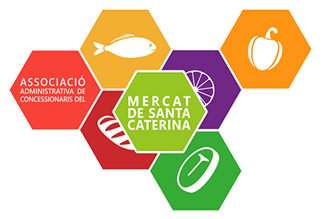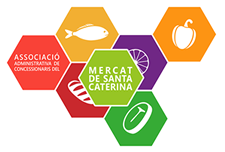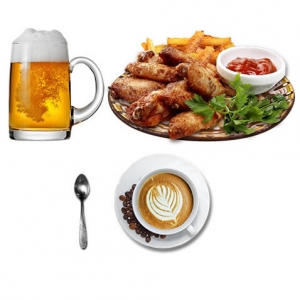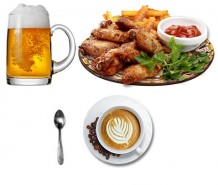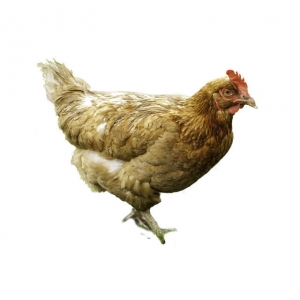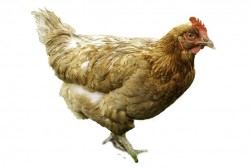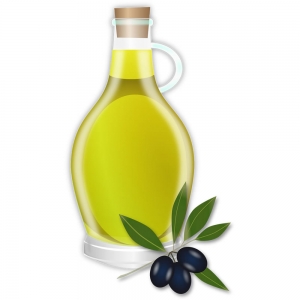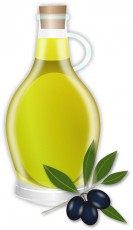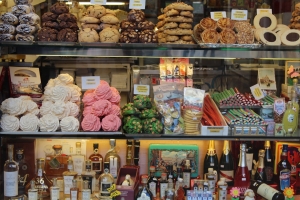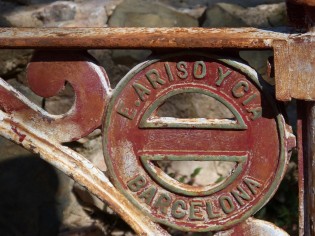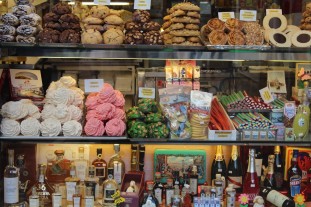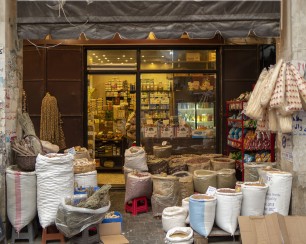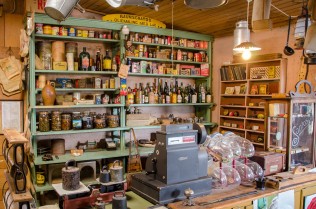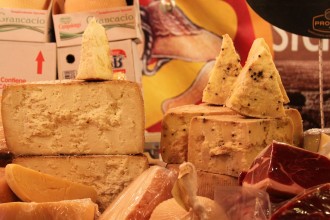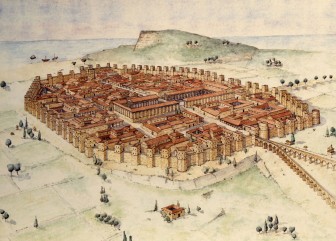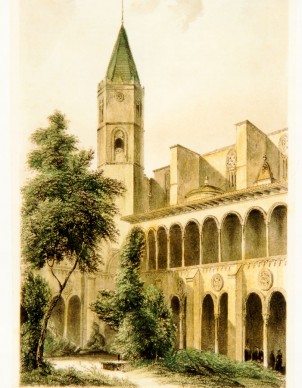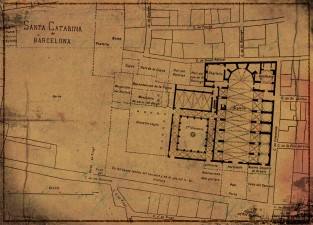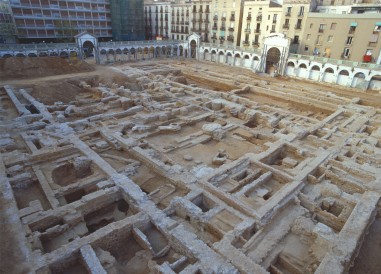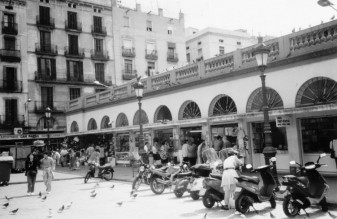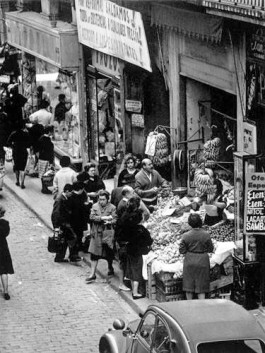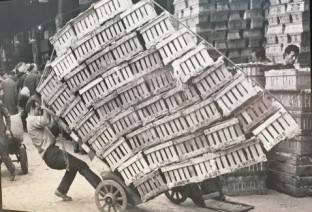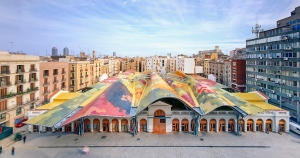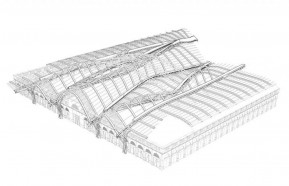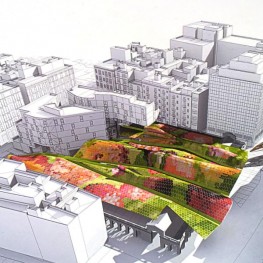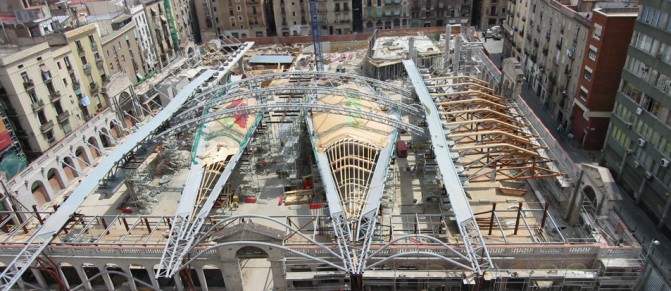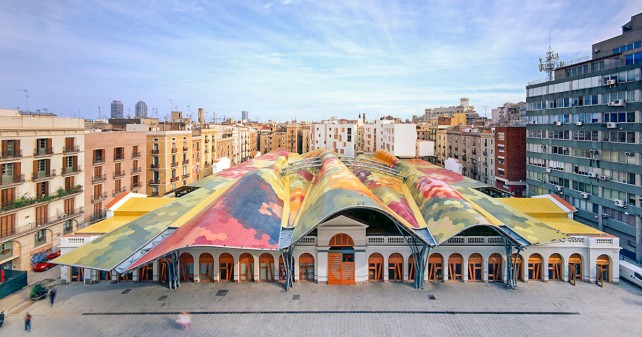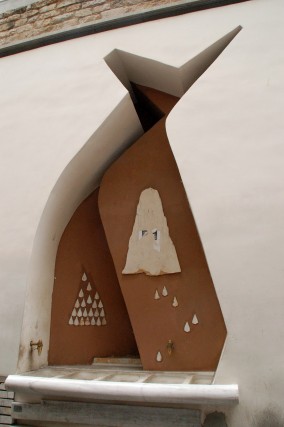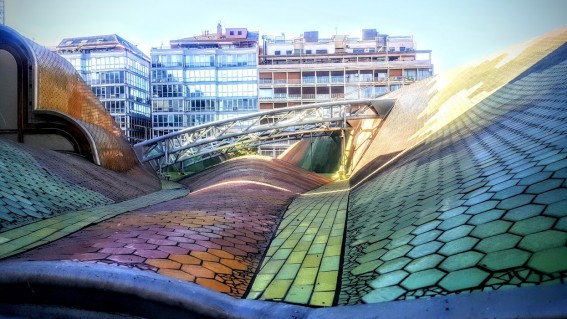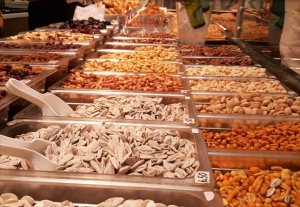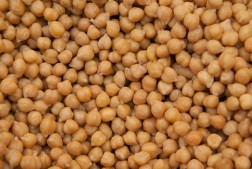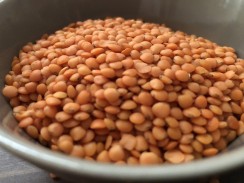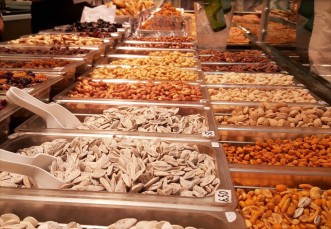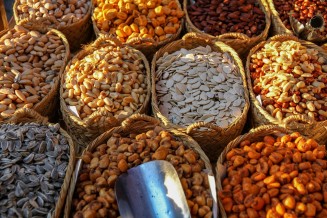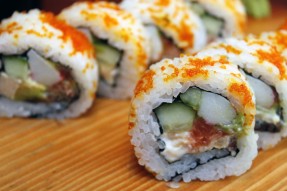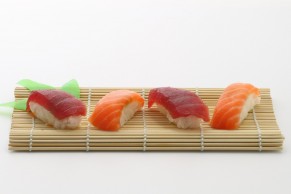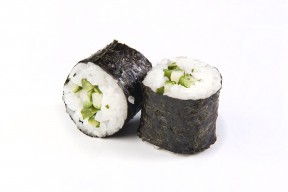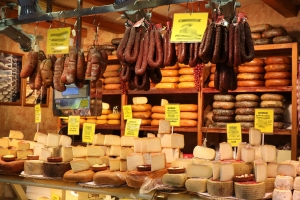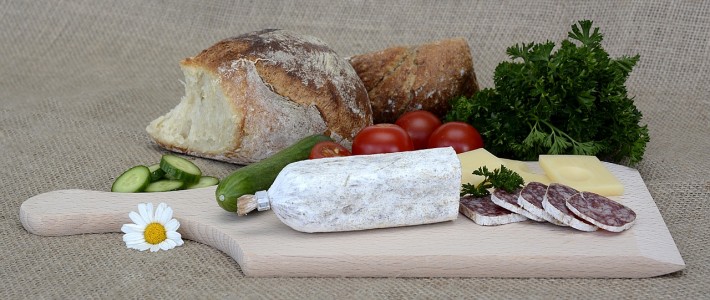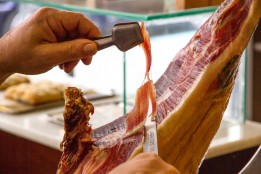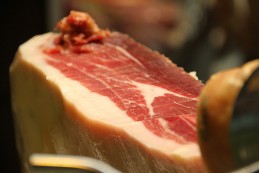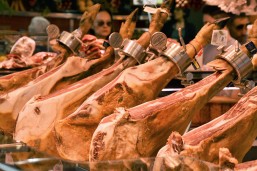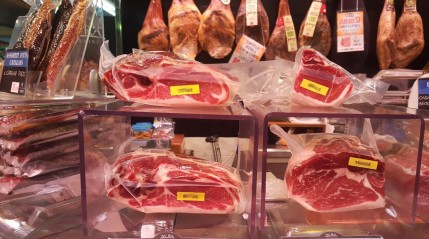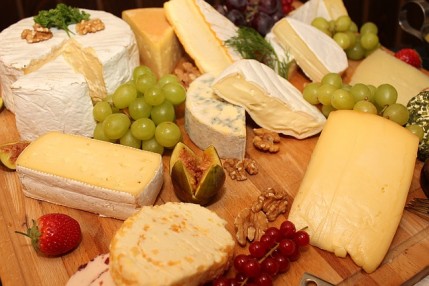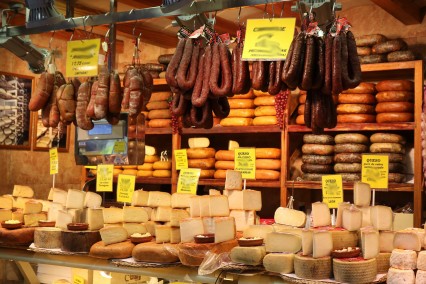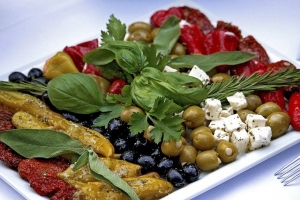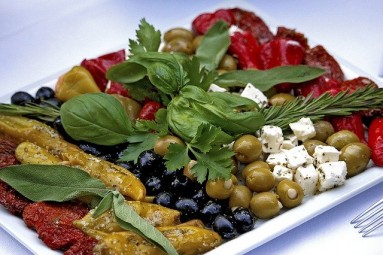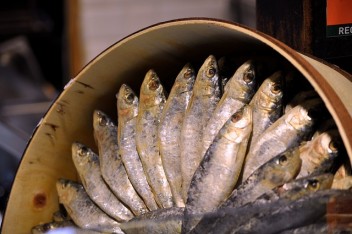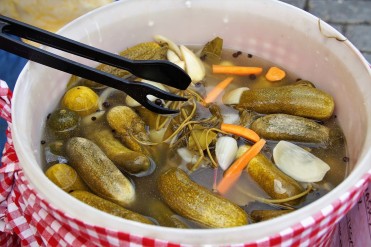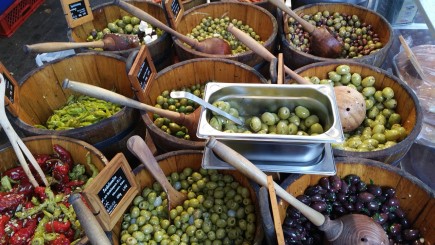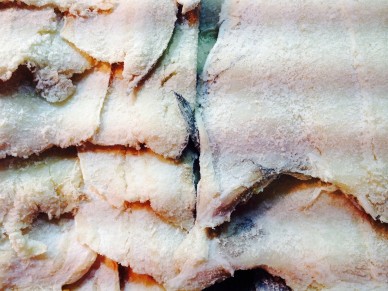Cliff
Bars and Restaurants
Your moments of relaxation and rest can be calmly filled in our bars and restaurants, whether you want to have breakfast in our market or have a small snack between meals, bocadillos, rolls, or simply have a coffee or a soft drink or take advantage of the shopping time to enjoy our service of restaurants, dishes combined with top quality products in our market
Stall 108 – 109 – 110
BAR JOAN
93.310.61.50
RESTAURANT CUINES DE SANTA CATERINA
93.268.99.18
Stall 176 – 177
BARESTAURANT L’UNIVERS
93.743.55.00
Stall 182 – 183 – 184
LA TORNA, bakery, cakes and coffee shop
93.319.58.21
Poultry / Game / Rabbit
In the Santa Caterina Market through our specialist stalls you will find a wide range of raw materials, chicken, turkey poultry and game that will cover the culinary and gastronomic needs of your home, do not hesitate to put yourself in the hands of our specialists to advise you on the poultry products we have for you
Stall 64
AGUSTÍ, Poultry and Game
93.319.02.83
Stall 19 – 20 – 21 – 22 – 23 – 24
EL PAGÈS, Chicken (creative chicken)
93.319.39.47
Stall 143 – 144
PONCE, Chicken and eggs
93.310.17.84 - 606.88.13.28
Stall 51 – 52 – 53 – 54
ANGELINES, chicken
93.310.06.37
Stall 147 – 148 – 149 – 150 – 151 – 152
MIQUEL, Butcher, chicken
eggs and offal
93.310.10.77
Olive Oils
At the stalls in our market you will find a wide assortment of olive oils, of different qualities, varieties and designations of origin that will surely cover your gastronomic needs and the most exquisite palate will be satisfied, with the wide catalog of products that we have at your disposition.
Stall 153 – 154 -155
OLISOLIVA.COM Olive Oils and pairing produce
93.268.14.72
Stall 65 – 66 – 67
ROSA MARINA, Salted Fish, Pickles, olives and preserves
93.319.95.86
More Information
Stall 15 – 16
TORRES, Olives and preserves
93.319.21.51
Stall 25 – 26 – 27 – 28 – 29 – 30
LAMIEL, Groceries, Charcuterie, dried fruit and nuts, sweets and pastries
93.310.56.47
GROCERIES
The forerunners of today's supermarkets were grocery and grocery stores. Places where you could buy all kinds of groceries, sausages, preserves, cleaning products and those typical and classic products for food and home maintenance.
These types of businesses were gradually replaced by small supermarkets whose only variant was self-service and which later became large supermarket chains and department stores.
In any case, the direct treatment of the lifelong shopkeeper, the trust, advice on quality articles and at the best possible price continues to be maintained, although it is true it is now in less, due to the fierce competition of the multinationals and large food chains.
In our market we continue to be faithful to tradition and you can find general food stalls where you can buy an large variety of products, from oils, canned fish, canned vegetables, various sauces, cheeses of different designations of origin and categories, pasta and pastries , cookies, sweets, nuts, and an innumerable number of products that will bring together your purchase in one place, but with the added value of advice, personal treatment, and the professionalism of its stall holders.
The tradition endorsed by these qualities continues and will continue to be if this is the wish of our customers who will make it possible through their trust and purchases.
Virtual Visit
Through this magnificent tool which as Google Map, you can take a virtual visit to the market, walking through it visually as if you were in the same market and thus observe our different stalls and the raw materials, products and services that we offer in it.
Welcome to another way of seeing the Mercat de Santa Catarina, we hope to see you there or through our home delivery service.
History
Located in the middle of Ciutat Vella, in the Sant Pere, Santa Caterina and La Ribera neighborhoods, the Santa Caterina Market has been a priveliged witness in the history of Barcelona. In fact, this was the first covered market in the city.
It was inaugurated in 1848, despite the fact that the works began in 1844, after a royal decree that granted old ecclesiastical land to the Barcelona City Council to proceed with its construction.
The Santa Catalina market is a single building that occupies a block between Avenida Francesc Cambó and the streets of Freixures, Giralt el Pellisser and Colomines. It is very close to the Via Layetana, the Palau de la Música, Santa María del Mar and the Gothic Cathedral.
The Market was born with the intention of assisting the supply of food to the popular sectors of the city.
The architect appointed by the city council was Josep Mas Vila. This developed an ambitious first project, which was quick to create a market with importance, and functions that would far surpass the squares and markets that were around at that time; The Borne and Sant Josep de la Boqueria markets.
It was about installing it in the center of the city, two steps from the cathedral. Build a market dedicated to wholesale trade, including the sale of meat.
But the Project did not go well, since its development required the acquisition of the plots that were next to it, something to which the Government of Madrid opposed.
In spite of everything, the Market began to function provisionally. In 1846 a fishmonger had been installed and also several stalls, the situation of which the town hall had auctioned in order to contribute to the financing of the construction.
During the postwar period, in the forties of the past century, it was the supply center for the population and neighboring cities; San Adrià de Besos, Santa Coloma de Gramenet, Badalona, el Masnou, Mataró ... from where people travelled with the trams that began and ended in Calle de Trafalgar and Ronda de Sant Pere.
The history of the Market, then, begins with the demolition of the convent, which was deposed in 1835 because of the revolutions of that time. The square of Santa Caterina was formerly called the square of Las Carretillas, in which a jug fair was held on Saint Domènec's day, according to Joan Amades' notes.
The monks of Santa Caterina had a well in the cloister, the mouth of which disappeared in one of the old reforms of the Market.
The water from that well was considered miraculous to cure malarial fevers, according to comments from the people of that time. For San Domènec, the monks distributed it to whoever requested it.
So that the water did not become contaminated, it was customary to brand new a pitcher to carry the water, for this reason the pitcher fair was established.
The market underwent a comprehensive remodelling between 1997 and 2004, projected by Enric Miralles and Benedetta Tagliabue. One of the most significant changes in this reform was the new colored roof, inspired by Gaudi's "trencadís". In the course of the works, various archaeological remains of the old convent appeared, which can now be seen in the basement of the market, as part of the Barcelona History Museum
The New Market
The reformation project was awarded to the * EMBT team of architects (Enric Miralles and * Benedetta * Tagliablue) and is an ambitious proposal that goes beyond the rehabilitation and conservation of the market building, opting on a global revitalization of the market and its environment with a burst of colors and shapes
The central nave of the market has an area of 3,685 m², built with classic materials such as wood and glass. The most emblematic element is a colorful mosaic roof with Gaudinian resonances made with 325,000 pieces and that wants to reproduce the colors of the fruit and vegetable stalls that formerly had been in the city squares, defining remisniences of the “trencadís” of the world famous architect.
The interior distribution is also unique: The aisles make up an original irregular space that makes shopping easier. The ceiling is finished in wood and gives a warmer atmosphere. In addition to the commercial energy that the market will accommodate, and which will attract customers, onlookers and tourists, the interior of the market's roof will be another focus of attraction.
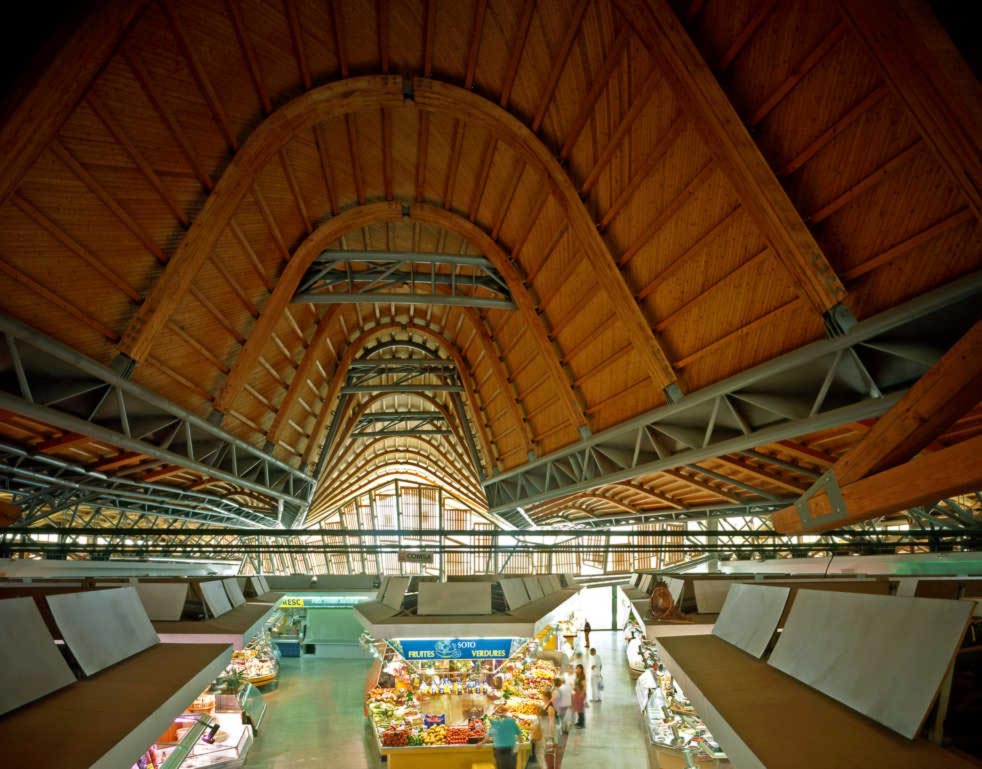
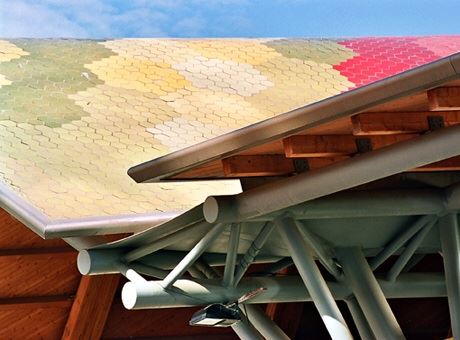
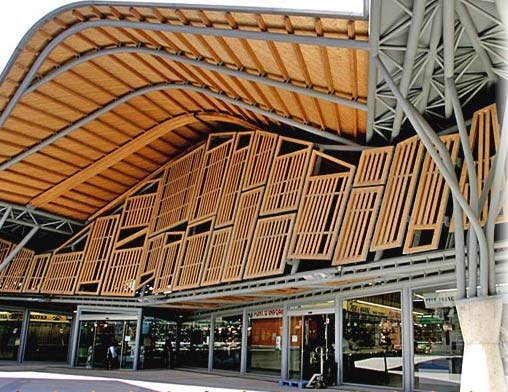
The structure of wood, concrete and metal structures support the immense multicolored ceramic roof.
The market will become a fine example for the residents of the neighborhood and the city and also for visitors, as is now the case with the Mercado de la Boqueria, the fame of which has crossed borders.
The original porticoed façade, rebuilt in 1988, and the side walls of the old building are preserved, while the south façade and the roof are elements that have been rebuilt, combining tradition with modernity in the same building and using traditional materials. like wood, metal and ceramics.
COOKED PULSES, READY MEALS, SUSHI, NUTS AND DRIED FRUIT
One of the most deeply rooted products in our country and especially in the Mediterranean area is the tradition of legumes cooked daily.
This type of product, due to the hours it needs to soak and cook, has formed a very popular type of trade and is almost exclusive to our area.
The consumption of legumes is popular in our country and the possibility of acquiring them already cooked and fresh make this product a highly sought after item for sale since there is no excessive production in the rest of European countries where you can basically find the product in preserve only.
Our specialists get up early to cook the most traditional pulses to perfection to be included in the most typical dishes of our gastronomy. In our market you can find: cooked lentils, cooked white beans, cooked gantxet beans, cooked chickpeas, cooked red beans, as well as to be Italian known as macaroni, spaghetti ready to just add a sauce and be eaten.
Within the category of nuts in our stalls you can buy:
Almonds
Hazelnuts
Cashews
Peanuts,
Chestnuts
Brazil nuts
Chilean hazelnuts
Macadamia nuts
Walnuts
Pecán
Pine nuts
Pistachios,
Pumpkin Seeds
Sunflower seeds
In its different varieties and quality
The multiculturalism of our city is represented in our market with a product that has been present in international cuisine in a very intense way and is the well-known sushi. Although this product is normally associated with fish or shellfish, it can also contain vegetables, eggs and any other accompaniment, the main product is rice, which is not necessarily always accompanied by raw products, but can be cooked, fried or marinated roasted preparations. The name of sushi refers mainly to the preparation of rice whose process must be strictly the traditional one and is seasoned with rice vinegar, sugar and salt. Generally, small portions designed to be eaten in a single bite are prepared and can take different forms, the most classic ones are rolled with nori seaweed and are called demaki, which means Japanese roll, When it is a rice ball covered by some type of fish we speak of nigiri, when it is stuffed rice inside a small sac of fried tofu it is called, inari, in our market you can buy this product prepared by hand and made daily.
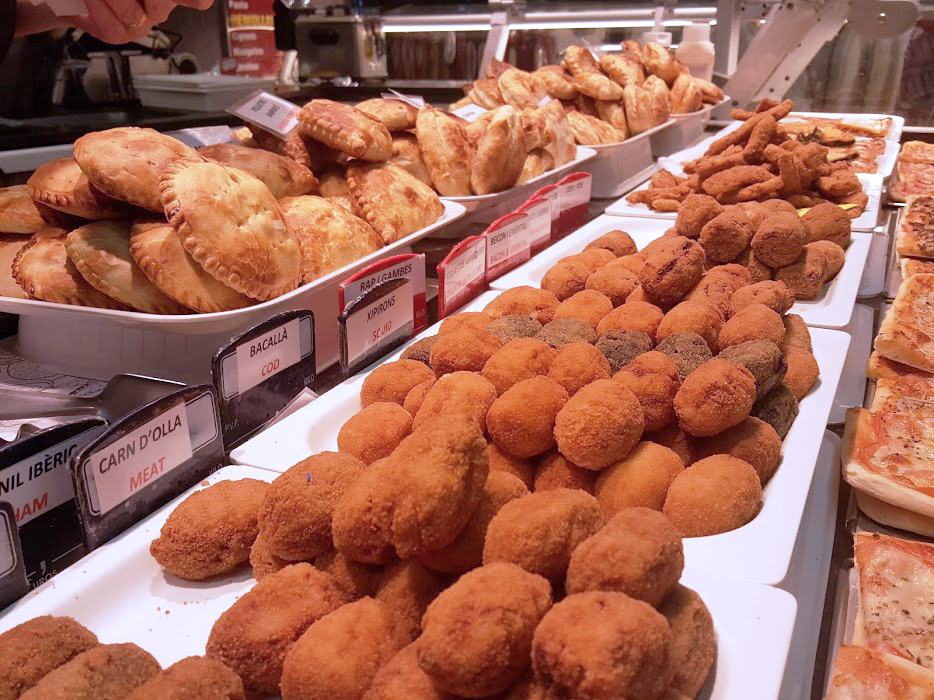
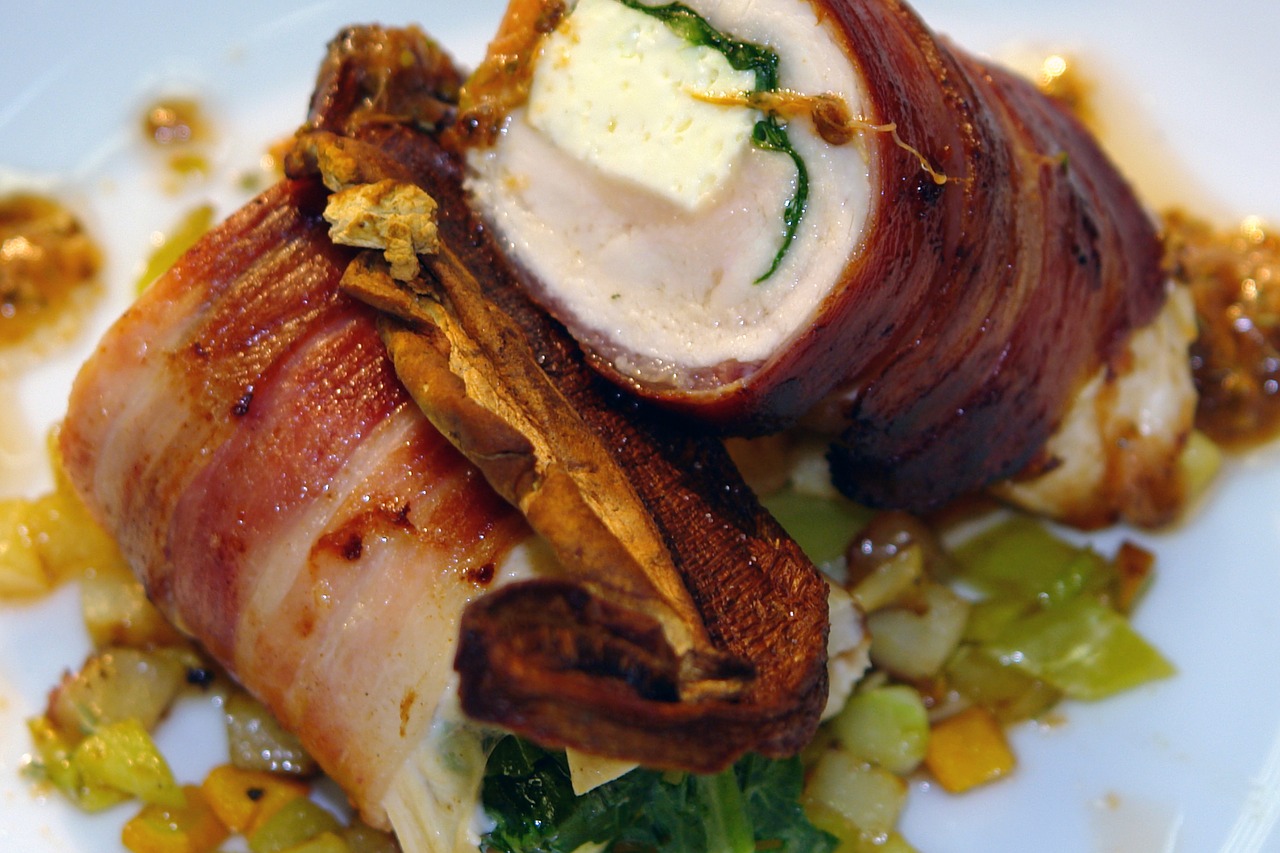
A tradition deeply rooted in our gastronomic culture is that of ready-made dishes that, initially being a tradition for holidays, has become a solution to provide quality homemade food every day of the week in a more economical way. , than in home cooking, and allows us to eat high quality dishes for a very reasonable price
In our stalls you will find a wide range of products, cooked ready to be heated and can be eaten in in some cases, with a level and quality and at a very reasonable price such as canelones with bechamel, meatballs, Allioli, vegetable salad, and cordon bleu pork.
DELICATESSEN, COLD MEATS, HAMS, CHEESES AND PORK MEATS
The element that is undoubtedly the king of our gastronomy is pork and its by-products. Tthe gastronomy and tradition of this valued animal makes all of its parts usable and all of them have a specific product that in many cases is protected with the denomination of origin stamp that protects its formula and quality.
The different protected pig breeds, presided over by the Iberian pig, generate an infinite range of products derived from each one of them. Iberian hams in their different forms are undoubtedly a product that has taken our tradition to all the countries of the world and have a leading presence in our market stalls as well as the wide range of cured hams, of breeds of the country that make up a wide range of qualities and prices with certified products of designation of origin ge the following areas:
Iberian pork:
Guijuelo Protected Designation of Origin (Salamanca).
Protected Denomination of Origin Dehesa de Extremadura (Extremadura).
Protected Denomination of Origin Jabugo (Huelva).
Protected Designation of Origin Los Pedroches
White pork
Teruel Ham Protected Designation of Origin (Teruel).
Protected geographical indication
White pork
Protected Geographical Indication Jamón de Trévelez (Granada).
Protected Geographical Indication Jamón de Serón (Almería).
All this featuring a high-quality product, a product in almost all cases we have at the market, which guarantees top-of-the-line raw materials, of maximum proximity and, above all, freshness. In some cases, you can access the services offered by our bars and restaurants directly from the street and enjoy a meal on their large terraces with interesting views.
Cooked ham, chorizo “salchichones”, fuet , “sobrasada”, caña de lomo, the different typical sausages, cold cuts are undoubtedly the leaders of our daily gastronomy and are starting to be so in many countries of the world. At our stalls you will find all kinds of hams and sausages, from the different national areas as well as sausages of international tradition such as Italian mortadelas and cooked hams, our charcuterie tradition is so extensive that we would need a whole website to be able to develop all the products which, where appropriate, are represented and marketed in our market stalls, as well as all the pieces and cutting of pork for different culinary preparations and preparation needs
Along with all the products derived from pork, we offer you an inexhaustible catalog of national and European cheeses, for all types of tastes and palates.
Cheeses made from cow's milk, sheep's milk, mixed milk, goat's milk, buffalo milk make up a complete catalog of products made of this milk derivative, fresh cheeses, semi-cured cheeses, cured cheeses, cream cheeses, You will find everything you may need from this product in our market.
The almost 115 cheeses cataloged in Spain, dozens of cheeses from France, Holland, Germany, Italy, and the United Kingdom are represented in their different varieties in our specialist stops, Everything you are looking for and need in sausages, national cheeses, International cheeses, hams and pork in its different variants you will find in our market,
OLIVES, SALTED FISH, PICKLES, PRESERVES AND SEMI-PRESERVES
One of the elements that are an essential part of Mediterranean gastronomy and that has an ancestral presence in our kitchens are salted fish, pickles and olives.
Represented in our market available at various stalls.
The tradition of salting in our markets and our kitchens goes back to the time when this type of food preservation spread throughout the Mediterranean.
During the Roman occupation, large factories were established in cities in the southern Murcian area of the Mediterranean and in Cádiz, the salt that was part of the payment given to Roman soldiers (hence the name of salary) was the essential element for conservation of fish that were conserved in clay amphoras with special prominence of the sardine, anchovy, mackerel, bonito and tuna.
In later centuries, Basque fishermen crossed the Atlantic Ocean, traveling to the mouth of the Saint Lawrence River, on the current border of the United States and Canada, where in its gulf, they fished the now, much-valued, cod. According to the conservation systems of the Nordic countries, they were dried with salt in the open air, which allowed their conservation and transport to Europe, where the different culinary traditions cooked it according to each culture
This preservation system allowed its trade in inland areas for later consumption once it was hydrated again.
The salt preservation system had already been extended to include sturgeon, moray eel, turbot, sea bream, conger eel, mullet, red mullet or mackerel.
Religious traditions, which prohibit the consumption of meat at certain times, made this product the main item of the tables, especially in inland areas.
In our stores you can buy the most select cod in all its most gastronomic parts, salted sardines, herring, fish preserved in oil such as tuna, anchovies that are so prominent at our tables, salted anchovies and a number of products that we put at your disposal.
You also have at your disposal a wide assortment of seaweed for cooking
Olives, such a Mediterranean product together with the tradition of pickles and preserved vegetables, are another of the protagonists of our stalls.
Manzanilla, Gordal, Aloreña, cuquillo, Campo Real, Hojiblanca, Sevillana, Arbequina, empeltre, or the international Kalamata Castelvetrano, Gaeta, Niçoise, Alfonso, Mission are some of the varieties that you can find in our stores,
Gherkins, Almagro aubergine, carrots, onions, capers, garlic capers, chillies, cauliflower, onions, bell pepper, piquillo peppers, dried tomato, ñoras, chorice or peppers are also part of the products that you can find in our specialized stops together with vinegars of all kinds, qualities and varieties
Municipal Markets
Come to the municipal markets of Barcelona and learn about the history, operation, new projects and all the news of these commercial facilities. The Barcelona model is undergoing an important process of modernization and remodeling of the more competitive markets, with modern facilities and the services requested by the public.



